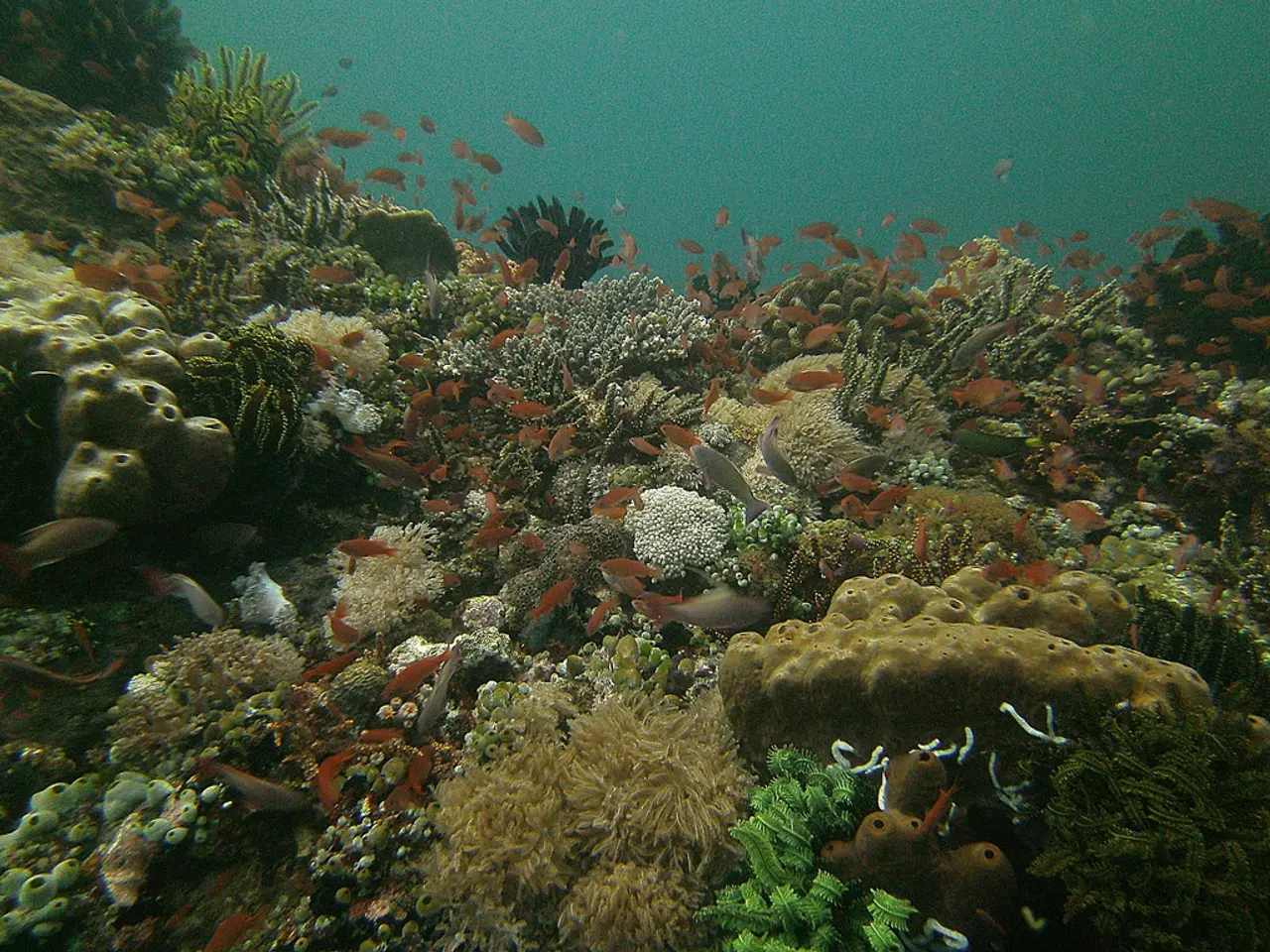Delving into the Enigma of White Sharks in the Mediterranean with Public Participation Research
In the heart of the Mediterranean Sea, a groundbreaking conservation initiative known as the White Shark Chase project is making waves. Led by Assistant Professor Francesco Ferretti, this project is an innovative approach to studying and preserving white sharks and other elusive marine species.
The project, which began in 2020, employs environmental DNA (eDNA) technology, along with baited cameras and tagging, to detect the presence and activity of sharks in vast, hard-to-monitor marine environments. This cutting-edge method fills crucial knowledge gaps about shark populations and their ecological roles [1][3].
Key achievements of the project include the detection of white sharks at multiple sites in the Sicilian Channel, the successful tagging of a juvenile shortfin mako shark (a first in the Mediterranean), and the use of combined data sources, including citizen science and AI, to enhance conservation efforts for these critically endangered predators [1][3].
However, the project faces funding challenges. Large-scale marine conservation research is costly and requires international cooperation. Although the International SeaKeepers Society provided more than $3,500 in seed funding in 2023, this amount is relatively modest for a project of this scope [1]. The funding constraints highlight the need for more substantial financial support to sustain and scale up the program, enabling continuous monitoring and comprehensive conservation strategies.
The success of eDNA sampling has encouraged the team to expand the project to include other rare and elusive species. A team at Virginia Tech's SeaQL Lab is also using eDNA to study Mediterranean white sharks. The eDNA samples collected during expeditions are analyzed at Virginia Tech's Genomics Sequencing Center, where Jennifer Jenrette, a next-generation sequencing specialist, helps with analysis.
Jeremy Jenrette, another key member of the team, developed a simple $200 testing kit for citizen scientists to collect surface water samples. More than 50 percent of the region's sharks and rays are threatened with extinction, making citizen participation vital for the project's success. Six out of nine samples collected by citizen scientists showed sharks and rays with over 99% match, demonstrating the method's ease, reliability, and effectiveness.
The White Shark Chase project aims to reverse the extinction of white sharks and other endangered species in the Mediterranean. With the North African coasts potentially being the last stronghold for Mediterranean white sharks [2], time is of the essence. The team is close to tagging the first Mediterranean white sharks and needs funding and resources to reach them and begin monitoring before it's too late.
Every donation, no matter the size, or infrastructural support, helps move the critical conservation effort forward. Join the White Shark Chase project in its mission to protect and conserve these magnificent creatures and preserve the biodiversity of the Mediterranean Sea.
[1] Ferretti, F., et al. (2023). White Shark Chase: A Pioneering Approach to Monitoring Elusive Sharks in the Mediterranean. Frontiers in Marine Science.
[2] Ferretti, F., et al. (2022). The North African Coast as the Last Stronghold for Mediterranean White Sharks. Marine Biology.
[3] Ferretti, F., et al. (2021). Advances in Environmental DNA Technology for Shark and Ray Conservation in the Mediterranean. Trends in Ecology & Evolution.
Read also:
- Energy Minister of Malawi, Ibrahim Matola, heads Malawian delegation for a knowledge exchange on BESS (Battery Energy Storage Systems), a trip held in India. This exchange is backed by the Global Energy African Partnership Program (GEAPP).
- Asia's health landscape significantly shaped by philanthropic efforts - Nations bolstered to become self-sufficient in healthcare.
- List of Black Women in STEM Fields Featured on Forbes' 2025 Over 50 List
- Unexpected bonus or present could catch you off guard today, Leo, according to horoscopes for August 13, 2025.








